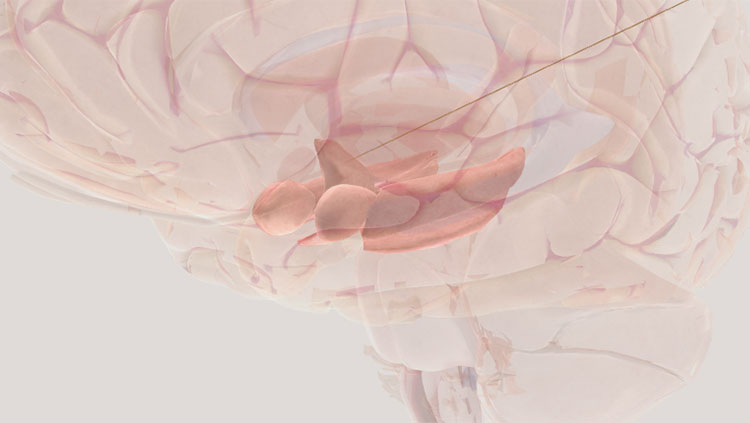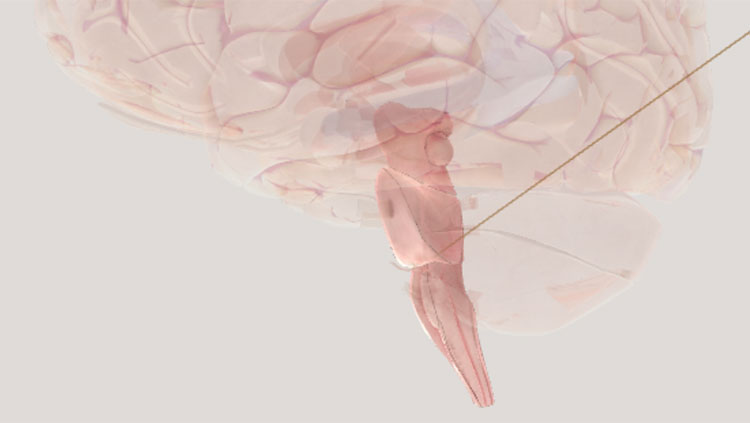Stress: The Role of Glucocorticoids
- Published1 Apr 2012
- Reviewed1 Apr 2012
- Source BrainFacts/SfN
In response to signals from a brain region called the hypothalamus, the adrenal glands secrete glucocorticoids, hormones that produce an array of effects in response to stress.
These include mobilizing energy into the bloodstream from storage sites in the body, increasing cardiovascular tone and delaying long-term processes in the body that are not essential during a crisis, such as feeding, digestion, growth, and reproduction. Some of the actions of glucocorticoids help mediate the stress response, while other, slower actions counteract the primary response to stress and help re-establish homeostasis. Over the short run, epinephrine mobilizes energy and delivers it to muscles for the body’s response. The glucocorticoid cortisol, however, promotes energy replenishment and efficient cardiovascular function.
Glucocorticoids also affect food intake during the sleep-wake cycle. Cortisol levels, which vary naturally over a 24-hour period, peak in the body in the early-morning hours just before waking. This hormone helps produce a wake-up signal, turning on appetite and physical activity. This effect of glucocorticoids may help explain disorders such as jet lag, which results when the light-dark cycle is altered by travel over long distances, causing the body’s biological clock to reset itself more slowly. Until that clock is reset, cortisol secretion and hunger, as well as sleepiness and wakefulness, occur at inappropriate times of day in the new location.
Acute stress also enhances the memory of earlier threatening situations and events, increases the activity of the immune system, and helps protect the body from pathogens. Cortisol and epinephrine facilitate the movement of immune cells from the bloodstream and storage organs, such as the spleen, into tissue where they are needed to defend against infection.
Glucocorticoids do more than help the body respond to stress. They also help the body respond to environmental change. In these two roles, glucocorticoids are in fact essential for survival.
CONTENT PROVIDED BY
BrainFacts/SfN
Also In Emotions, Stress & Anxiety
Trending
Popular articles on BrainFacts.org

















